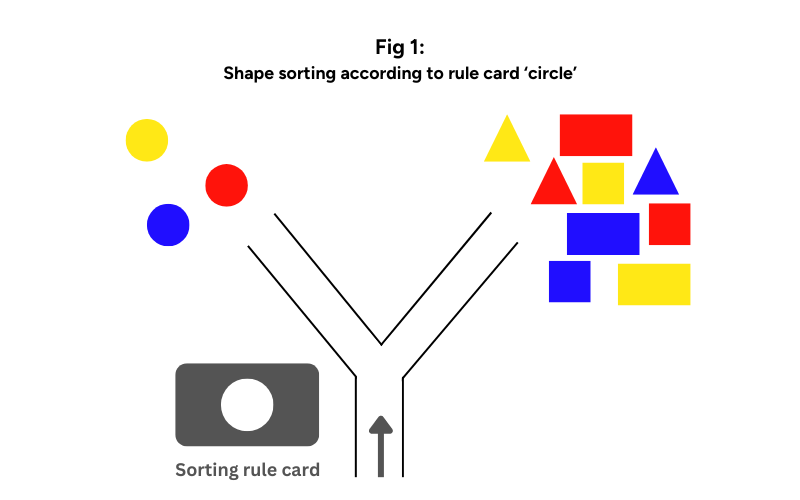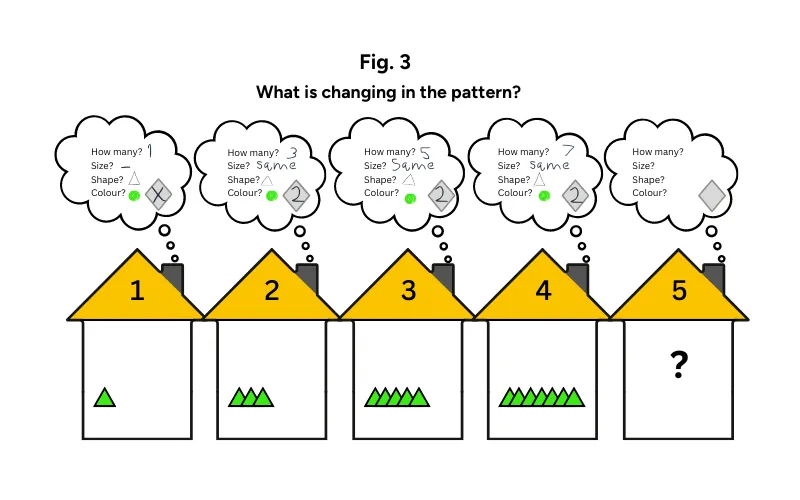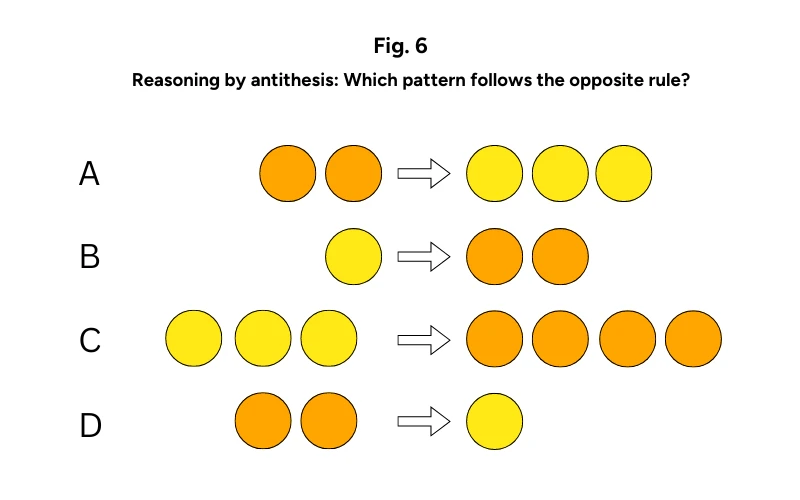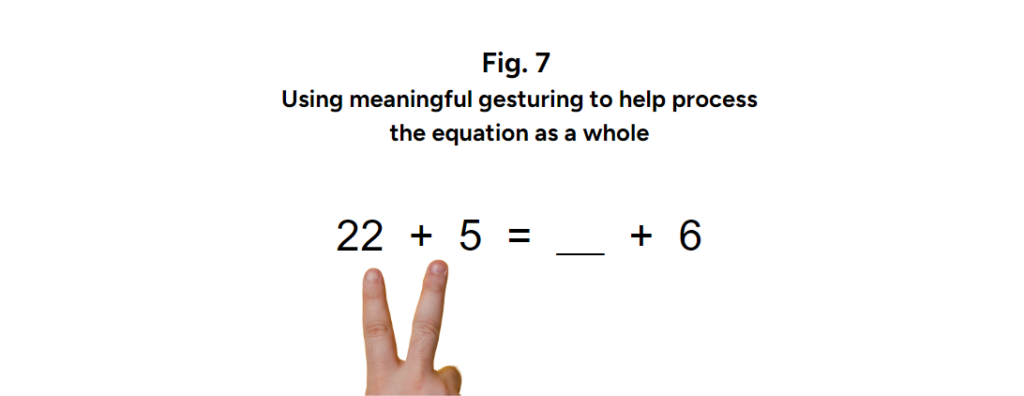This year we had a record-breaking number of delegates graduate with a postgraduate award. We were excited to have the opportunity to celebrate with some of them at their Middlesex Graduation ceremony!
Delegates achieving a Postgraduate Certificate, Postgraduate Diploma, or Master of Education were invited to don their cap and gown at the recent Middlesex University graduation ceremony and we were delighted that so many were able to attend in-person.

The graduation event is more than just a ceremony for our graduates, it’s a chance to celebrate their hard work and connect with their peers. Just before the ceremony, we raised a glass to our graduates’ success at a drinks reception, which was a fantastic opportunity for graduates, their families, and our team to mingle, share stories, and celebrate all that has been achieved.
We also took the opportunity to set up a filming booth to capture our delegates’ experience of studying with Real Training and find out about the positive impact their training has enabled them to have in their setting. It has been such an honour to be part of each of our delegate’s learning journeys, and we can’t wait to see where their new qualifications take them.
So, a massive congratulations to all of this year’s graduates and to those delegates currently studying with us, we hope to be able to celebrate with you in the future!
Feeling inspired? Why not take a look at our courses to see how you could further your career.
This resource is designed to help develop pupils’ spatial thinking and non-verbal reasoning skills through a series of tasks that require them to closely examine patterns. It has been designed in PowerPoint to make it easy for you to edit and add your own notes for learners. Many of the shapes are editable to allow teachers to create further patterns.
Explanatory notes and answers can be found in the accompanying download.
Don’t miss Gill Cochrane’s article: Making maths stick: The Importance of Spatial Thinking. Gill explores the latest thinking on spatial thinking and relational reasoning and how teachers can help build these skills in order to protect against later maths difficulties.
Encouraging more spatial thinking in maths can have a big impact on children’s confidence and overall ability. Gill Cochrane explains the close link between spatial thinking and reasoning skills and outlines some practical things teachers can do to help. [Don’t miss our free resource at the end].
Whilst teaching maths as a primary school teacher, I became fascinated with the idea of ‘semantic glue’ – or what makes information ‘stick’ in our memory. The pursuit of answers to ‘the glue question’ led me to undertake a psychology degree. During my studies, I came across these words from the Nobel prize-winning scientist Eric Kandel:
“Memory is everything.
Without it we are nothing.“
– Eric Kandel
Kandel studied Californian sea slugs to reveal how memories are formed. This research helped demonstrate how memory supports the process of monitoring for safety when we are moving through space. Human functioning and reasoning essentially evolved to serve this need. Grasping this powerful idea allows us to appreciate how inextricably linked spatial processing and reasoning are.
There are three essential steps in both processes:
- adding new information to what you already know and hold in memory
- relating and connecting this information to what’s already known
- using this new information to achieve a purpose or find solutions to challenging situations.
Essentially, both boil down to extracting meaningful patterns from the environment. Understanding this helps to explain why the latest research into how children learn maths has demonstrated a causal relationship between spatial thinking and academic outcomes, prompting increasing calls to spatialise the maths curriculum. It could also explain why weak verbal and spatial working memory are commonly associated with maths difficulties and maths anxiety.
So how can we, as teachers, exploit the connection between reasoning and spatial skills to help re-address difficulties with maths learning?
Pattern detection and relational reasoning skills
Relational reasoning makes a unique and positive contribution to maths outcomes. Giving pupils early and explicit experience in rule-following will improve their ability to monitor sets of information for patterns.
Attribute blocks vary in shape, thickness, colour and size; early sorting work with these blocks encourages learners to observe and describe relative differences and similarities and boosts maths vocabulary. Venn diagrams give a great framework for further explicit categorisation work using the blocks. Children can then build on the knowledge gained sorting shapes to generate patterns. This is an important skill, as it involves the application and creation of rules.
Activity 1 – Sort it out: Present children with an assortment of attribute blocks and a simple rule card that says, for example, ‘circle’. Ask them to sort shapes according to the rule. Gradually make this more complex by adding more than one rule for example, ‘circle’ and ‘thick’. You can see this in Figure 1.

Activity 2 – One at a time: Give pupils a set of attribute blocks each and ask them to play a domino game where the rule ‘only one change at a time’ governs the flow of play. They will need to take turns to put down blocks between them, but they won’t always be able to go. An example sequence from a game is shown in Figure 2 below.

For progression, you could also ask pupils to work together or independently to determine the steps they must go through in order to get from an initial state to an end state in the shortest number of moves by changing only one attribute at a time. For example, ‘How many steps does it take to get from a large, red, thick circle, to a small, blue, thin triangle?’
Activity 3 – Patterns: You can encourage children to discuss their reasoning by providing prompts to structure their analysis of a pattern. In Figure 3 you can see how pupils are asked to fill in information about every stage of a pattern. For example, has the number of objects changed? Are they the same shape? The grey ‘difference diamonds’ featured in the speech bubbles prompt the recording of this crucial bit of between-item information. Providing the numerical term positions on the roofs helps to structure discussion of the pattern and predictions of the next item in the series. Developing pattern detection skills like this will help children move on to more complex non-verbal reasoning.

Analogical reasoning
This is perhaps the most familiar type of reasoning, and it features in many popular matrix tasks, such as Figure 4. In activities like this, the learner needs to choose the right shape to complete a pattern. Information can be deduced by looking at the relationships between the two other given sequences; potential answers are displayed immediately below each question.
It’s important for us, as teachers, to understand the steps in the exploration that lead to the solution.

Reasoning by anomaly
This involves working out the rule behind various patterns and then spotting the sequence that isn’t following it. Look at Figure 5. By studying each of the patterns and the interrelations within them you will start to appreciate how practice in this type of task promotes structured scrutiny of the relationships within and across the set items.

Reasoning by antithesis
This requires learners to identify when a parallel or opposite rule has been applied. This is more complex, as the process must be identified so the sub- item featuring the opposite process can be chosen. Practice with all these types of non-verbal reasoning tasks is done without processing number systems, allowing analytical skills to be strengthened separately from numeric work.
There is evidence that this type of reasoning practice can help when it comes to work with numbers.

Purposeful scanning
A rich body of research demonstrates that purposeful scanning of information can significantly aid the ability to solve problems. There are indications that providing practice in explicitly noticing relationships within written equations can boost performance on similar maths problems. For example, building meaningful gesturing into the appraisal of sums can lead to better performance on tasks involving the equivalence concept.
Ask pupils to use their index and middle fingers to touch each number before the equals sign (and any after it) and then to use their index finger to point to the missing information. (See Figure 7). The gesturing enhances the processing of the equation as a whole, working from left to right.

Changing how we present sums can alter the way pupils monitor the equations set and boost performance. Re-organising the presentation of a problem (see Figure 8), promotes scanning of the whole sum, and examination of the interrelationships within it.
In time, with supporting, structured discussion, learners can develop flexibility in strategy use when calculating, which can reduce the need to calculate in some cases. The children will learn to exploit the inter-relations to reduce the cognitive load of computation.

Read also: Understanding maths difficulties
Organising numbers and fractions spatially
Recent research has shown that lower levels of maths anxiety are found in people who ‘spatialise’, organising sequences from left to right in verbal working memory.
Here are some ways we can help children spatialise their mathematical understanding:
- Number lines and bar models should be modelled as important organisers of computational thought.
- Work on fractions should include their ordering on number lines to make relative value explicit.
- Cross-sectional drawing can provide an additional way to map space to solve word problems.
There is a causal link between spatial thinking and achievement and confidence in maths. Spatialising maths builds an appreciation of the relations between and within objects and ultimately contributes to a more secure mathematical understanding in the longer term.
Gill Cochrane is a former primary school teacher. She is now the lead developer on the specialist literacy and maths courses run by Real Training in partnership with Dyslexia Action.
Find out more by visiting realtraining.co.uk/maths-courses
Free resource!

| Gill’s Top Tips for Building Maths Confidence |
| Reduce reliance on memorisation for learning basic number facts; use number relationships and reasoning strategies instead. Try conceptual instruction using a limited range of numbers (e.g., 1 to 9), their sums and associated subtraction facts. This makes it easier to analyse the relationships between the elements within the sums. Use exploratory work on factor pairs to help encourage more flexible calculation strategies. Giant number lines can help young learners to walk through sums and to conceptualise counting as ‘moving on.’ Gesture and personification have been shown to increase retention and deepen understanding by recruiting a wider range of memory systems. Use concrete resources for teaching angles for example, using hinged strips to show that an angle is a measurement of turn. Promoting maths oracy should be an important feature of each maths lesson. |
We are excited to announce we have launched a brand new course, aimed at ensuring the safe and ethical integration of Artificial Intelligence (AI) in education.
Our Safeguarding AI for Leaders (SAIL) course is tailored for Designated Safeguarding Leads (DSLs) and school leaders, focusing on developing and implementing robust AI policies within educational settings. Developed in partnership with AI experts Educate Ventures Research (EVR), it is designed to equip educators and school staff with the knowledge and tools needed to navigate the evolving landscape of AI while prioritising student safety.
The new course addresses key areas such as:
- Adapting safeguarding practices for AI
- Exploring new threats and ethical considerations
- Ensuring security and compliance with regulations, practical implementation strategies.
It has been a please to develop this course alongside Educate Ventures Research (EVR), leaders in the field and who have brought their expert knowledge, evidence-based strategies, and practical guidance to the programme, enabling delegates to learn how to responsibly integrate AI into educational practices.
For more information, including eligibility, start dates, costs, and duration, please visit the Safeguarding AI course page here.
By Dr Sue Sheppard, Educational Psychologist and Module Leader for Real Training’s postgraduate courses in autism. This article originally appeared in Teaching Times.
If you could model a learning environment that was intended to be an assault on the senses it might very much look like a typical school.
To a neurotypical person this might be difficult to comprehend – yet for a young autistic person, our schools can be the epitome of chaos. Hundreds of children shouting noisily, teachers raising their voices to be heard, bells going off, the constant echo of footsteps in corridors, people talking all at once in lessons, dense slides, bright lights, itchy uniforms, a bombardment of smells in the dining room.
It can take a lot of energy just to be there.
For autistic girls, however, this exhaustion is often multiplied due to their need for perfectionism and the pressures of masking as they strive to meet social expectations. The more we learn about their routines, including ruminating, the clearer it becomes that this can be at the detriment to positive wellbeing. Autistic girls have even been described as ‘little psychologists’ by some in the field, due to their tendency to over-analyse events and experiences.
Gender stereotypes have shifted over the last ten years or so and we now recognise the nuances of autism in girls. I’ve spent thirty years as an educational psychologist, developing a specialism in autism and in recent years have increasingly worked with young autistic girls. Many of these girls report feeling isolated, misunderstood, anxious and exhausted. There is a significant increase in those who find attendance challenging and many have been out of school for extended periods of time. These students may gain other labels, for example, anxiety or depression which become the focus and their wider needs can then be ignored. It has been suggested that up to 80% of autistic girls remain undiagnosed at the age of 18.
Much of what I have learned comes from listening carefully to autistic girls and women and their families. Here’s what I would advise teachers and leaders to focus on;
Provide meaningful ways to connect
Research is showing that a ‘sense of belonging is key’ for autistic girls who need to find a feeling of community just as much as their peers. Many autistic girls can struggle with this at school, however, some girls might be very sociable and talkative and others will be more shy and isolated. It is important to ensure autistic girls spend regular time with named key staff who can really get to know them and ‘empower’ them to share their views around what works well for them and what makes challenges worse.
In a recent video produced by the Donaldson Trust, Erin Davidson, a 17-year-old with autism explains that “the feeling of isolation at school was, well, crushing because I could be surrounded by people and still be entirely alone.”
Schools can help by setting up supportive lunchtime or drop-in groups for neurodiverse girls so they find peers they can relate to and perhaps even gain support from. Providing peer mentorship schemes or buddy schemes with empathetic neurotypical peers or trained wellbeing ambassadors can also be considered, with guidance from teachers or support staff.
Breaktimes can be problematic because they are unstructured. Providing activities where autistic girls can bond with a small group in shared activities such as art/craft, origami workshops, digital animation or film clubs, reduces the need for scripted small talk and allows them to talk about an interest with others who are equally passionate. It might bring added benefit of providing some much-needed sensory stimulation or opportunities for relaxation.

Recognising anxiety triggers and managing transitions
Emerging research suggests autistic girls may be more prone to anxiety than autistic boys. Before adaptations can be made, we need to identify the triggers for each individual. Often, for girls, this can be related to unexpected changes, a lack of control over transitions and a need for perfectionism.
Classroom-based solutions might include; pre-warning of changes, sticking to ‘set’ seating patterns and allowing autistic individuals to leave the classroom five minutes earlier than their peers when it is quieter. At the same time, it is very important to ensure they do not find themselves ‘standing out’ even more. They may need more individual instructions to get started and visual supports and prompts, plus reassurance that they are on track.
Outside of the classroom, anxiety drop-in workshops can help equip girls with calming strategies, breathing techniques and ways to understand and avoid catastrophizing and negative thought patterns. One technique I often find works well in individual work is the ‘size of the problem’ method of viewing their concerns. Introducing the idea of a ‘stress bucket’ has also been effective as has teaching about ‘automatic negative thought patterns’ and using ‘laddering and rating scales’.
Visual demonstrations of ideas are important and analogies often seem to help. Additional support from staff who have specialist skills and autism training will help each girl build up a personal ‘toolkit’ of strategies to understand and manage anxiety. It takes time, but is very important, as is the encouragement to trial ideas.
Reducing sensory overload in the classroom
Reducing sensory overload in the classroom; it is important to recognise that individual needs will be quite different here, so teachers should work closely with the young person to identify what helps, whether that’s allowing her to wear noise-cancelling headphones or providing a preferred seat at the front of the class or pulling down blinds etc. Some schools also provide the opportunity to use screens at workstations or a quiet zone. Individuals will differ and may experience hyper and hypo sensitivity to sensory input. I usually carry out sensory audits as part of my assessments. Take note, as well, that the dining hall can be hugely problematic and separate spaces for eating lunch may be needed.
Some girls will find the concept of pair work uncomfortable, others end up leaning on just one solitary friend. Teachers could steadily build up a small rotation of ‘trusted and preferred’ peers to increase the quality of social interaction and also help broaden the ideas that are discussed. Giving set roles in advance which draw on their strengths is useful, for example, appointing a girl who has skills in drawing as the illustrator.
If the pace of lessons is a challenge, providing opportunities for remote or virtual work, such as collaboration via Google documents and allowing ‘time to process’ thoughts can also be beneficial.
Teaching self-compassion
Girls who gain a diagnosis can feel more understood, but this journey can take time. Building positive affirmations into the routine of school life and teaching self-compassion can help guard against this. Perfectionism and over-analysing are common traits in autistic girls, so teachers should work with students to set realistic goals and teach that failure can be a benefit to learning.
Recognising and developing strengths; providing an outlet to work on and highlight strengths is essential. Take the lead from the individual and identify areas she enjoys e.g; drama, art, music, literature, baking, any sports, forest school skills, design and construction etc. Personally, I have seen girls who’ve been put in charge of social enterprise initiatives linked to their interests, such as catering for school events, really thriving in secondary school.
We should celebrate areas where they do excel e.g. specific subjects, strong memories for facts, and good vocabularies. Often autistic girls have rich imagination and creativity and are strong with logical systems.

Regular rest and restore opportunities
For the majority of autistic girls masking and/or sensory overload is exhausting and they need opportunities to ‘recharge’. This could be a time-out system from class, quiet zones for break times and access to a ‘safe-haven’. They need ways to access safe spaces in school where there are named adults they can turn to. Reduced timetables at GCSE level can also facilitate positive learning outcomes.
While, in my experience, later arrival times can sometimes add unnecessary pressure about being treated ‘differently’ and ‘standing out’, slightly earlier departure times and/or relaxing or solitary activities before it is time to leave school can, and should, be offered. This provides the young person with an opportunity to decompress, get away from the sensory overload of school and travel home at a quieter time of day.

Working very closely with parents
Autistic girls need opportunities to unmask. They may hold it together during the school day but then release frustration or anxieties when they get home. Having open lines of communication with parents is essential, often school professionals will think that a young pupil is coping fine, but parents will have a very different view. In her highly informative video about spotting the signs of autism, Immie Swain describes how she would “keep it together at school but then when I got home everything would go wrong.” Schools need to know this whole picture and listen to parents. Alleviating pressures at school can make life at home easier. Sleep issues are also common and will further impact learning if not identified and supported.
Specific PSHE advice
I don’t like referring to autistic people as vulnerable learners, because it’s often our artificially created “neurotypical” environment that renders them that way. Autistic girls may be very adept learners, however, they can struggle to be flexible in rapidly changing social situations. Their lack of natural ability to pick up on social cues can make them more likely to be vulnerable to exploitation and bullying and in some cases victims of sexual assault. Teaching them how to stay safe will be important.
Schools might consider getting special-trained staff to teach sex-ed to autistic girls who often don’t discover intimacy until much later or indeed prefer not to have physical intimacy. They may also need more support when it comes to things like self-care and diet. Eating disorders can be present and need specialist support but eating issues may also relate to sensory factors or routines relating to calorie counting and specific diets. Schools need to be mindful and seek advice when it’s required.
Alternative female role models; some autistic girls might initially try to copy the most popular girl in the school or influencer on social media, but usually end up finding their own style. Highlighting positive neurodiverse role models in lessons can help them broaden their idea of what it is to be successful. There is a greater likelihood that autistic girls will not conform to gender norms and they may have a more unique understanding of interpersonal relationships.
Access to animals and nature
Time spent with animals and in nature can help alleviate anxiety, as well as helping with social interaction. Autistic girls often love their pets and are drawn to animals and report finding them more predictable than people. Whereas boys with autism may be more fixated on mechanical things, girls tend to have special bonds relating to animals and build positive relationships in this way. Schools that have a ‘school dog’ or links with horse riding centres or local farms have utilised such programmes with success.
Using alternative sports as an outlet for confidence-building
Sport can be another way for autistic girls to tap into a community as well as generally releasing endorphins. If your pupil finds team sports challenging, then offering her engaging solo activities such as fitness suites, wall climbing, swimming, and trampolining might also serve a similar purpose. Athletics is often popular. Sometimes, the most compassionate thing to do is just to let her sit out some PE activities (especially team-based ones).

Final thoughts
Autism has been vastly under-diagnosed in women and many education professionals are only now just beginning to learn how to spot the signs in the current generation of young girls – some of whom go to incredible lengths to camouflage their ASD.
Although autistic girls may be sometimes be quiet and not seek the attention of the group, this does not always mean they are ok. As they go through school and ‘informal rules’ around female social lives become more complex, the effort required to blend in will become more intense. It can feel isolating and anxiety-provoking if you want to keep talking about horses or manga characters, but your peers have moved on to other things.
It is vital, therefore, that individual needs are clearly identified and the right one-to-one support is put in place. This means not just making adaptations for multi-sensory needs within the classroom, but considering wellbeing and self-confidence in a broader context that will promote a ‘sense of belonging’, as well as increasing confidence and happiness. Sarah Hendrix, an autism advocate, speaker and assessor, has created a great video exploring how to do this.
Some of this requires a shift in mindset. Rather than simply trying to coach girls about how to fit in and improve their social skills – we should also be enabling them to find those moments of meaningful connection where they can genuinely be themselves. We also need to listen with care to identify solutions to any presenting challenges and we will need to be creative and highly flexible.
In a recent survey, only 14% of secondary teachers said they received more than half a day’s training on autism. Given the nuances of how ASD presents, particularly in girls, it is difficult to see how this can be sufficient. We need a whole school approach to build an autism-friendly school with good levels of training for all staff and an ‘autism champion’ who takes the lead.
Auditing autism provision in your setting should be a priority, both to celebrate what you are doing well, but also to identify an action plan for enhancing provision for this group.
Dr Sue Sheppard is a practicing educational psychologist. She is also Real Group’s specialist EP for autism and module leader for Real Training’s postgraduate courses in autism. She has been a consultant to the Lorna Wing Centre for Autism (part of the National Autistic Society) since 1996 and is embedded in the internationally recognised DISCO diagnostic training team.
After starting her early career as a specialist teacher, Sue worked as an EP for numerous London boroughs. She has been instrumental in setting up provision for children with ASD across early years, primary and secondary. She continues to work in schools and with families and undertakes specialist psychological assessments of autistic children and young people.
Maths difficulties are still poorly understood and often have many causal factors. While specific early interventions can and do work well for learners – is it time to consider whether our broad approach to maths teaching is contributing to the problem in the first place?
Many children (and adults) in the UK struggle with maths. Exactly what label is applied to this is currently under some debate. The prevalence of Dyscalculia, a specific learning difficulty, has been estimated at 3-7% although academics are divided on causal mechanisms, definition and diagnosis. Many think of it as one end of a continuum that includes broader maths difficulties and even maths anxiety.
The drive to recognise some of the innate and very specific biological reasons behind maths difficulties is worthy and indeed essential. However, we shouldn’t lose sight of the significant impact that other factors such as teacher-pupil relationships, socio-economic factors and unconscious bias have to play.
And there is, of course, another dimension, which is the method of teaching maths itself. In the UK we often still teach maths in a way that places heavy emphasis on rote learning, including drilling sequences, rules, processes and formulae, from early years right the way through to GCSE. Sometimes we overlook other, deeper routes to understanding that don’t place such a high demand on working memory which puts some learners at a disadvantage.
The social and psychological factors can aggravate maths difficulties
In order to understand the root causes behind why some children struggle, it is important to recognise the role that social factors and teacher-pupil relationships play.
These include;
- Unconscious bias. This is particularly well documented in maths. A study conducted in the US found that when maths teachers were asked to rate pupils’ overall ability they were more likely to judge white pupils as higher achievers than their black or hispanic peers. This is despite previously marking entirely or partially correct answers to an 18-question test without any evidence of bias. Similarly, in a study carried out in Ireland, female primary school teachers were more likely to rate nine-year-old boys as ‘above average’ compared to girls, despite similar academic ability. Bias often means we lower expectations of learners, who then don’t feel supported and fall behind in a self-fulfilling prophecy.
“Groupthink” can also negatively impact how we assess and support learners. Researchers from the University of Maryland have demonstrated that such ‘communities of practice’ can result in groups of teachers discarding a more methodological approach to assessing needs, in favour of naturally supporting each other’s beliefs, especially those that place the locus of deficit with the learner. - “Boffin blinkers.” Some teachers are such experts in maths that they cannot remember what it was like to acquire concepts and end up teaching it in a way that misses out key steps. In this situation, the ‘expert in subject matter’ can systematically underestimate the difficulty of the subject matter for the learner – they have their “boffin blinkers” on.
- Maths anxiety. It can take only one or two negative experiences with maths – perhaps when a pupil felt put on the spot – to provoke lasting maths anxiety, which has been shown to overwhelm working memory. Some teachers, particularly those working in Primary schools, can also be anxious about maths, making them gravitate more towards rote learning methods. Students who lack confidence in their teacher’s ability to do maths may also be more likely to suffer from anxiety themselves.
- Socio-economic factors. According to a study in the US, by the time they reach four, children from poorer socio-economic backgrounds may have had considerably less exposure to maths at home than their peers and already. Several UK studies have had similar results (see Fisher et al 2020). Some researchers have pointed to the potential impact of social class on executive functioning as a potential contributing factor to maths difficulties, while others also highlight its link to reading ability and the more verbal aspects of maths.
Is our current approach to maths teaching making difficulties worse?
When it comes to the innate causes behind difficulties, we now know that working memory deficits (including verbal, spatial and visual dimensions) play a significant role. Sometimes the way we teach maths in school places a great deal of cognitive load on precisely these weaker skills, without providing other routes toward gaining maths understanding.
Maths learning works through scaffolding; which essentially means that pupils with working memory difficulties can get stuck on the early foundational levels, unable to move up to the next rung of the ladder.
Here are some common issues with maths teaching in many schools, particularly those following the British or US curriculum:
1. ‘Rote’ learning versus teaching for understanding
Memorisation does have a role to play in maths and there is good grounds for encouraging its use. A study published in Nature Neuroscience, for example, found that memorising the answers to simple maths problems is a key step young children take when developing from counting on fingers to doing more complex sums.
That being said, what we understand as purely rote learning should be balanced with approaches that encourage a deeper relational understanding i.e. knowing why a mathematical rule works. Researchers from the Medical University of Innsbruck in Austria have shown that different parts of the brain are used when pupils are asked to just memorise maths facts, as opposed to working through various strategic approaches to absorb them.
Exploring ways to do maths that rely less on simply drilling maths facts can help level the playing field for those who have working memory deficits.
This particularly applies to how we approach sums. Providing learners with pages of calculations such as 14+9 = 23 will not cultivate a rich maths understanding and generate overreliance on the ‘counting on’ method. Rather we should also be challenging them to approach sums using more of an algebraic approach, getting them to place the equivalent, or equals signs and the numbers in missing boxes, in order to complete the sum.
The example below shows what this might look like;
Similarly, at a more advanced level, approaches that promote a visual, less formulaic understanding of things like quadratic equations have recently made headlines and proved popular with some teachers and students.
2. Prioritisation of speed and accuracy over creativity
We have a tendency to praise speed in maths. Often by putting learners on the spot, either by asking for answers to sums in class or using timed tests, we create anxiety which can derail working memory. Yet many of our top mathematicians were not particularly speedy at school, nor are they even as adults. They are however very creative and often highly visual thinkers who were encouraged to explore multiple routes to solving problems.
3. Too much emphasis on arithmetic and not enough on spatial thinking
In 2020 researchers Sorby and Panther found that the performance of fifteen-year-olds on PISA tests correlated highly with their scores on spatial cognition assessments. The researchers concluded that ‘improving spatial skills could be an overlooked strategy to improve student performance.’
Learners with maths difficulties may lack skills in spatial thinking. However the good news is that (contrary to previously held belief), recent research, such as that carried out by academics at the University of Toronto, has found these skills are malleable and can be taught.
4. Lack of confidence and knowledge to select alternative approaches
Many teachers feel like they lack the specific skills to help those with maths difficulties. Training may have been non-existent, or merely scrape the surface when it comes to things like evaluating interventions. This creates uncertainty about bringing more creative solutions into the classroom. Yet having a rotation of different teaching techniques and maths games can have a huge impact on learners; we’ll be investigating this further in later blogs.
Final thoughts
A better understanding of the genetic causes behind maths difficulties should not leave us blind to the influence of social and psychological factors, in particular, teacher-pupil interactions.
The way maths is typically taught throughout the Western world is simply not working for all learners. Many countries, including the UK, have recently attempted to address some of the problems outlined above by adopting the so-called ‘mastery approach’ to maths, used in countries like Japan, Singapore and China. This involves teaching for understanding and intervening as soon as problems are encountered, repeating each small unit of learning until it is securely understood. Although countries like the UK are now encouraging this approach, the extent to which this is uniformly understood, applied and genuinely embedded into teaching approaches varies considerably.
Having a good working understanding of maths is a gateway to higher earning potential and a broader scope of career opportunities. Unfortunately, the routes to achieving this are still blocked by the prioritisation of skills like calculation and memorisation, which can be incredibly demoralising for students with maths difficulties.
What we now know is that there are many more important and creative skills, such as spatial thinking, that go into making a great mathematician and that these skills can be nurtured.
As Marcus du Sautoy, professor of maths at Oxford University writes “even for those with dyscalculia it’s important to remember that mathematics is not simply sums.” Rather, he reminds us, maths is “the language of the universe and it’s one we can all learn to speak.”
Learn more about how to help children with maths difficulties..
Real Training is now offering courses for Primary and Secondary Maths Teachers, TAs, SENCOs and specialist practitioners/teachers/assessors to help build their knowledge and skills to assess and support learners with maths difficulties. Find out more about our courses that help you understand the theory behind maths acquisition and teaching methods and gain the skills to become a specialist maths teacher.
A considerable body of research points to mental health provision being most effective in schools when it is conducted as part of a whole-school approach (Weare and Nind, 2011). This means focusing not just on isolated projects delivered by external experts, but galvanising the entire school community and making mental health an ongoing priority, embedded into the ethos, activities and curriculum of your setting.
To support this, senior mental health leads need to have a good understanding of both change management principles, particularly those endorsed by the EEF (Education Endowment Foundation), and the latest mental health best practice.
Below, we’ve illustrated some of the tactics a senior mental health lead might be focusing on and how they fit into the eight principles of the whole school approach as defined by Public Health England. Although tactical interventions are only relevant when considered in the context of an action plan developed for each setting, there may well be ideas that are helpful for you.
LEADERSHIP AND MANAGEMENT
1. Set up staff working groups for mental health and wellbeing
This allows you to establish clear roles and responsibilities and enable staff voices to be heard. A working group provides a clear link between pastoral leaders, mental health first aiders, teaching staff, SENCOs, school nurses and family liaison officers.
2. Create a student-friendly version of your mental health policy
Asking a group of pupils and staff to create a student-friendly version (or a series of videos) of your updated policy, raises awareness, encourages a sense of inclusion and makes your policy more accessible to all students.
STUDENT VOICE
3. Strengthen your student council
Giving your student council a dedicated role in wellbeing initiatives such as leading anti-bullying programmes and wellbeing awareness days gives them a sense of agency and increases the likelihood of engagement. Consider committing to regular “you said, we did” assemblies and ensuring all student groups with responsibility for wellbeing (e.g. LGBTQ+ groups.) meet regularly.
4. Launch a Wellbeing Ambassadors programme
Wellbeing ambassadors receive specific training enabling them to provide peer mentorship support and can play an active role in promoting wellbeing initiatives.
STAFF DEVELOPMENT, HEALTH AND WELLBEING
5. Identify gaps in mental health training
A Google poll can be a helpful way to identify where staff feel there are gaps in training, allowing you to devise a plan and a budget for both universal and focused interventions e.g. bereavement or trauma-informed practice.
6. Review staff mentorship and supervision
Appointing a dedicated CPD leader for mental health means they can coordinate the logistics for the training. This leaves SMHLs free to review the mentoring in place for staff so they know who to approach when they feel out of their depth or if a child discloses something that the staff member needs to talk to someone else about.
IDENTIFYING NEED AND MONITORING IMPACT
7. Evaluate existing targeted interventions
Using a more structured way to assess targeted interventions for example The Art Room, (group therapy) or the effectiveness of ELSA support according to the Assess-Plan-Do framework helps you track and evaluate their impact. This might include using online assessment tools such as the Boxhill profile.
8. Improve general wellbeing questionnaires and feedback forms
Including some questions that are generated by students captures often captures feedback that might otherwise have been missed, as does more open ended feedback from focus-groups. All of this information should be stored in one place to be filtered into a plan of action.
WORKING WITH PARENTS, FAMILIES AND CARERS
9. Launch wellbeing drop-in sessions for parents of children with SEND
Establishing regular drop-in sessions can provide effective early support, increase awareness of masking in school and build stronger parental support networks. Topics might include managing anxiety and school arrivals, guidance around emotional regulation, or tips on how to prepare for transitioning years.
10. Create a digital and face-to-face strategy for parent education
Creating a wellbeing hub on the school website as well as offering in-person sessions can help parents with their own wellbeing, as well as encouraging continuity of techniques practiced at home and school. You might also consider a dedicated wellbeing app for parents and children.
ETHOS AND ENVIRONMENT
11. Embed SEMH strategies e.g. Zones of Regulation
Driving a whole-school approach to emotional regulation using techniques such as Zones of Regulation or trauma-informed practice will help lay the groundwork for better metal health. Actively incorporate this into pedagogy and best practices around rewards and consequences in school and make sure it is being learned not just by rote, or displayed on a couple of posters, but as a tool that staff regularly model and children actively use.
CURRICULUM, TEACHING AND LEARNING
12. Revise PSHE policies and documentation
Doing this will ensure all aspects of mental health are being covered effectively and in line with the latest guidance. You may also consider surveying students to understand their views on current PSHE lessons and whether they want to see additional topics covered.
PROVIDING TARGETED SUPPORT AND APPROPRIATE REFERRALS
13. Establish a network of local providers
Producing a directory of local providers and understanding exactly what services they offer and their typical waiting times will help staff make more informed referrals and cut down on admin time.
14. Create a mental health referral toolkit for pupils
Creating a student-facing resource that all pupils can easily navigate will reduce some of the barriers and provide direct access to clinical or community support. This should clearly signpost services in the community e.g. for young carers.
In conclusion
The tactics every SMHL chooses to implement will vary hugely depending on your pupil mix, what type of setting you work in, the resources available to you, the delivery partners you work with and the immediate mental health priorities of your staff, pupils and parents.
While a minority of tactics might be able to be picked off quite readily, most are lengthy projects in themselves and we often recommend that the SMHL selects just a few areas to focus on each academic year. Our senior mental health lead training courses include one-to-one coaching from an educational psychologist who understands the context and challenges of driving meaningful change within a school environment.
Further reading
Find out more about the whole-school approach to mental health
Watch a case study video: A whole-school approach to health in a Yorkshire primary school
New to the role? Read former SMHL, Andrew Chadwick’s 8 top tips for success for senior mental health leads
Beverley Williams is one of our delegates here at Real Training. She has had an expansive career, influencing the lives of many young people with SEN. Not only has Beverley completed multiple courses with Real Training and gained a vast amount of professional knowledge through SEN and safeguarding roles, but she was also diagnosed with Aspergers at around 50 years old.
We thought it would be useful to share Beverley’s story, not only for those delegates looking to have an impact but also for anyone on the autistic spectrum who may be looking for some advice.
By Andrew Chadwick is a former Headteacher and SMHL, and is currently Safeguarding, Ambition and Inclusion Lead at Focus-Trust. In this article he gives some essential advice for anyone new to the senior mental health lead role.
Article originally published in Headteacher Update Magazine 11.03.2024 – accessible here
The senior mental health lead role is challenging and there never seems like enough time in the day to do it justice. However, the role is fundamental to the positive wellbeing of pupils and staff in school.
In education, we are all taught about Maslow’s hierarchy of needs and it is worth reflecting on just how important things beyond physiological requirements, such as a feeling of belonging and wellbeing, truly are. Every child deserves to have this at school. However, it takes someone who can lead whole-school change and influence every layer of the school community to begin to go about meeting these needs.
Every setting has its own unique circumstances and challenges. That being said, there are some key pieces of advice I would offer to all those who are new to the role of senior mental health lead to help them hit the ground running, including tips to help you get the most out of the government-funded training.
Don’t try to take on too much, too quickly
One of the biggest challenges I faced when I first started in the role turned out to be self-management. Like many leads, I wanted to do everything straight away, but it is really important to audit provision to identify a few focus areas each academic year and go through a structured change management process. You simply can’t rush ethos change if you want it to be meaningful. This is where the senior mental health lead training course can be particularly useful.
Be brave and have difficult conversations
It can be incredibly challenging to talk about certain topics, such as suicide, especially in primary schools and many staff were deeply concerned about the possible effects. However, it’s far more risky and scary not to have these conversations – it just needs to be done under the proper framework and with the right training (and communications) in place.
Don’t overlook the importance of parents’ mental health
Some way into creating an implementation plan for the year during my senior mental health lead training course, I realised that we were going to need to provide some sort of provision for parents themselves in order to really make an impact. The cost of living crisis and the pandemic exacerbated many mental health problems which, in many cases, are being passed from parent to child.
At my school, we sought to actively include parents in wellbeing initiatives as well as offering programmes like the mums’ wellbeing groups and later one for dads as well. There’s so much stigma around mental health that you can’t go in all guns blazing, sometimes the softly, softly approach works better.
For example, we’re now piloting parents’ cookery classes at another school in my trust as a means to encourage people to socialise and think about their mental health. The hope is that people come for the food and then while they are there we will have a guided discussion on a different wellbeing topic each week.
Let staff have a say in designing new initiatives
We wanted staff to champion wellbeing initiatives everywhere throughout school, as well as being able to benefit from them themselves. To achieve this we consulted all staff on things like the Zones of Regulation and ended up adapting the strategy and making our own resources to suit the needs of our setting.
Setting up a working party for social, emotional and mental health (SEMH) needs was particularly effective and we found techniques like the “rich picture method” incredibly useful to collate ideas and identify areas of weaknesses.
Think about your gatekeepers
When it comes to making changes to staffing, systems and processes, don’t overlook your front-of-house teams who may be the first point of interaction with parents. They need to be approachable and let you know when vulnerable individuals need help so you can drop everything to be there.
Consider the right mental health training, for the right staff, at the right time
I made it clear in my action plan that I didn’t think a whole-staff approach to training was always appropriate. Teachers’ workloads can be so great that they can simply be overwhelmed and not retain additional information well. When it came to things like trauma training we trained only those who needed it, when they needed it.
Don’t underestimate the power of supervision
Helping pupils with more significant needs can have an impact on staff. Often, especially in smaller primary schools, we just assume that we see each other every day so can check in with each other, but there’s a real power to more structured supervision. We’re currently developing triads of schools that can collaborate across the trust to provide this enhanced support.
You can read more about Andrew’s approach to trauma training in his interview with Educational Psychologist Joanna Wood.
Take advantage of senior mental health lead training
Government funding for the senior mental health lead training is available up until the end of March this year (DfE, 2024). It is not certain that it will be renewed every year so apply while you can. Look for a course that’s flexible and practice-led so that it helps, rather than detracts, from your day-to-day workload and it becomes part of what you need to do.
The course I took was led by educational psychologists at Real Training and the tutor support was excellent. It prompted me to become a lot more strategic in my whole-school approach.
Reflection was absolutely key to the success of my projects. The senior mental health lead training required me to go through a reflective journal. Although at first, I must admit I was a little sceptical, it turned out to be a really powerful tool, alongside regular feedback from my tutor.
Final thoughts
The senior mental health lead role is one of the most crucial in our schools. Of course, finding time to devote to doing the role well can be hard, but remember that the impact you can have across school and on children’s lives is nothing short of phenomenal.
Read more
Find out more about senior mental health lead training and which course is right for you
Watch Andrew’s full review video of Real Training’s senior mental health lead advanced award
Read the full case study to find out more about the impact of Andrew’s action plan at his primary school








